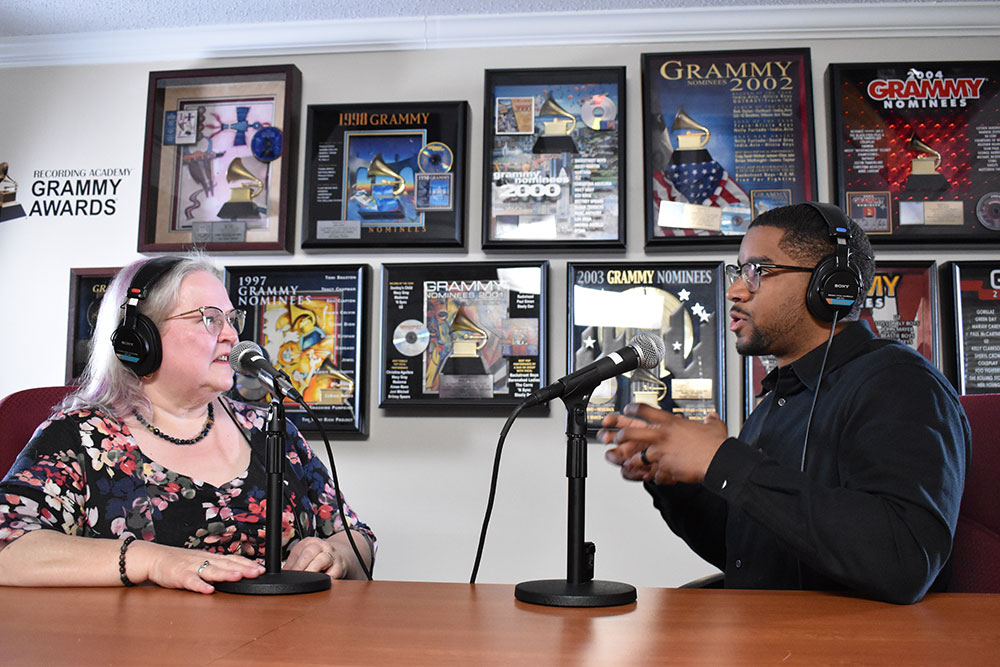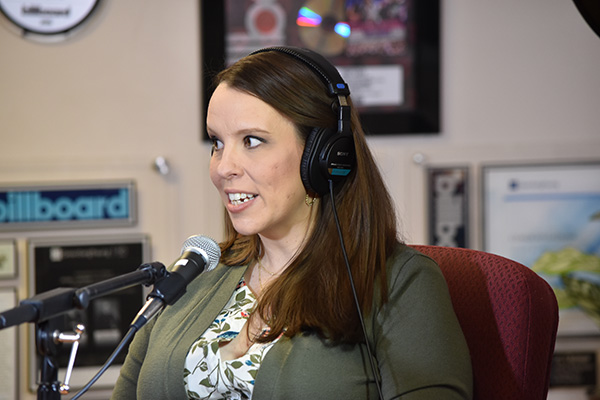
KSU Top 100 Trades Competition for Collaboration
KENNESAW, Ga. | Jun 28, 2018
The KSU Top 100, once a fierce pitch competition that pitted student entrepreneurs against one another for a shot at winning valuable seed funding, has been reimagined as a collaborative accelerator that encourages student business owners to succeed together.
Clint Crowe, recent winner of the 2018 KSU Top 100 and co-founder of Elite Event Rental, says the changes to the competition provided valuable opportunities to learn from other contestants.
“The collaborative nature of the Top 100 was huge for me,” he says. “It was a combination of great time with mentors and great time with likeminded students.”

Clint Crowe pitching his business, Elite Event Rental, during the KSU Top 100 finale. Photo courtesy of Joanna Trejo
Created in 2015 by the Michael J. Coles College of Business Doug and Robin Shore Entrepreneurship Center, the KSU Top 100 highlights innovative business ideas created by Kennesaw State University students.
In its original form, around 100 teams of student entrepreneurs competed to pitch to a panel of Atlanta-area business leaders. The judges eliminated students from the competition at each bi-weekly meeting, leading to a final showdown between the top ten. The winners received $5,000 in funding for their businesses.
After two years, the Entrepreneurship Center’s administration began to feel that the KSU Top 100 focused too much on competition and not enough on business development.
“At each meeting a big chunk of students would get cut and then there would no longer be any support for them,” says Regan Durkin, Assistant Director of the Entrepreneurship Center. “That’s not really what we want our Entrepreneurship Center to be known for. We want it to be known for growth and development and actually doing entrepreneurship, not just talking about it.”
Durkin and the executive director decided to rebrand the KSU Top 100 for academic year 2017-2018 as a business accelerator. Rather than starting out with 100 teams, they reviewed the applications and, in October 2017, brought in just 14.
The 14 teams worked with each other and with their provided mentors throughout the academic year to develop strategies for growing their businesses, including setting goals and establishing key performance indicators. While the KSU Top 100 still concludes with a pitch competition in the spring, the winner is chosen not only based on their ability to make a persuasive pitch, but also on how well they meet their goals throughout the nine-month process.

KSU Top 100 contestant Jerad Marco Johnson (right) with mentor Jorge Chavarro, CEO Legendary Meats. Photo courtesy of Joanna Trejo
Because all 14 teams remained in the accelerator until the final competition, they each benefitted from an entire academic year spent developing their businesses alongside one another with guidance provided by the Entrepreneurship Center.
“It created this community of students who weren’t looking at each other saying ‘if you win, then I lose,’” Durkin says. “Instead they were all asking ‘how can we all grow and scale together?’ The competition doesn’t come until the end of the process.”
Crowe, the first winner of the rebranded KSU Top 100, says the change in the competition’s tone was positive. Without the constant threat of elimination, students looked forward to meeting twice a month to learn from each other.
“The cohort was unbelievable,” he says. “There was a lot of smart, sharp, industrious talent in that group. Everybody there was committed to living a life by design, rather than a life on default.”
Crowe, who graduated in May shortly after winning the KSU Top 100, started Elite Event Rental as a freshman in 2013. His business provides table, chair, and tent rentals for events across the southeastern United States, including all Kennesaw State Athletic Association home games and other on-campus events like Owl-o-Ween and alumni parties.

Tents supplied by Elite Rental at Kennesaw State Owls home game
Although his business was already established when he applied to participate in the Top 100, the experience helped him make real, lasting improvements. His goal during the accelerator was to land specific accounts, which he was able to do thanks to the motivation and support of the other contestants, mentors, and Entrepreneurship Center staff.
“They would all come back and challenge me,” Crowe says. “Reporting numbers wasn’t enough. They wanted to know who I was going to talk to, when I was going to talk to them, and what my follow-up was going to be. The process was transformative. I stopped looking at revenue as just a number. It’s also about the relationships.”
Durkin says Crowe embodied the collaborative nature of the new KSU Top 100 in everything he did, despite already having a successful business.
“Instead of being arrogant, he would put aside what he wanted to get out of the process to mentor the other students and get them where they needed to go,” she says. “He was always willing to help and serve. I think that is one of the things that took him so far in the competition.”
In addition to $5,000, the winner of the KSU Top 100 also can meet with representatives from entrepreneurship support organization TiE Atlanta to potentially receive investment capital from a $250,000 fund earmarked for the Entrepreneurship Center. Beyond that, the prestige of winning the competition creates many opportunities to network with area business leaders. Crowe has already had several meetings with local high-level executives since winning.
The Entrepreneurship Center is currently accepting applications to participate in the 2018-2019 KSU Top 100, and encourages any student with an innovative business idea that seizes on a major market opportunity to learn more about the program and to apply at the KSU Top 100 Homepage.
Although only one team can win the competition each year, Durkin is confident that all participants earn value from the KSU Top 100.
“It’s not really about winning a competition,” she says. “It’s about being an entrepreneur.”
-Patrick Harbin
Related Posts

Gathering Spot CEO Ryan Wilson on Building a Social Club to Inspire Connections.

Kennesaw State MBA student leveraging degree work for a cause

CEO Magazine Ranks Kennesaw State Executive MBA Top Program in Georgia, No. 11 in the World

LexisNexis marketing director on the importance of remembering people when developing a marketing strategy














